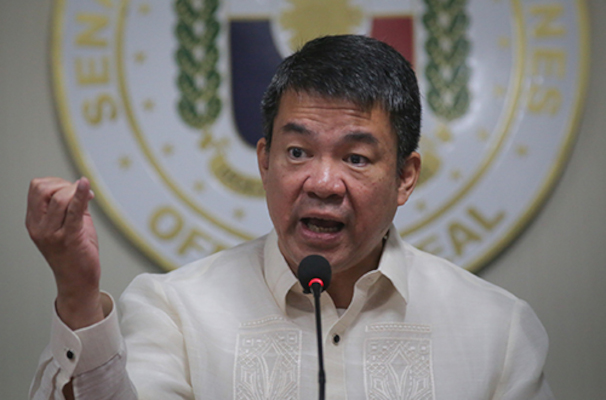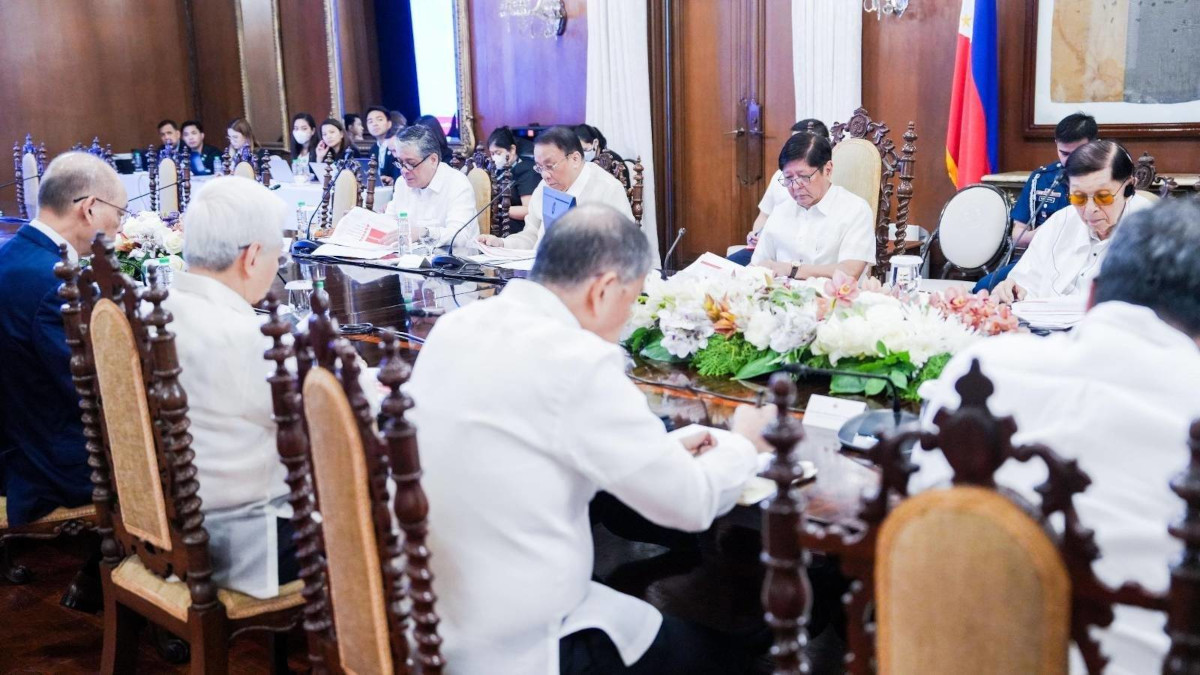Sounding like a broken record, Senate Minority Leader Aquilino “Koko” Pimentel III keeps appealing to his colleagues to consider scrapping unnecessary and reducing excessive lump sum allocations for confidential and intelligence funds (CIFs) in the proposed 2023 national budget.
Despite his explanations on the need to prioritize more important programs instead of keeping the P9.29 billion CIFs in the budget, Pimentel’s call is falling on deaf ears.
Rep. Edcel Lagman of Albay repeatedly made similar calls to his colleagues at the House of Representatives. On Sept. 28, congressmen overwhelmingly approved House Bill 4488 on the P5.268 trillion budget proposed by Malacañang, keeping the P9.29 billion CIF intact.
When the budget bill is put to a vote in the Senate in the next few days, we can expect only Pimentel and his fellow opposition Sen. Risa Hontiveros casting a negative vote. The two senators have said they would file a joint written position specifically for the scrapping of the P650-million confidential and intelligence funds tucked in the budgets of the Office of the Vice President (OVP) and the Department of Education (DepEd). Both agencies are under Vice President Sara Duterte-Carpio.
Pimentel and Hontiveros will certainly be outvoted by their colleagues in the majority coalition who have been sticking to the “unity” mantra of the Marcos-Duterte tandem, regardless of the deleterious effects of their votes on the public that they have sworn to serve.
The Office of the President is the biggest recipient of the CIFs, with P2.25 billion intelligence and another P2.25 billion confidential funds. The P500 million CIF under the OVP is even higher than the P444 million CIF for the Philippine Army, P175 million for the National Bureau of Investigation and P141 million for the National Intelligence Coordinating Agency.
The Philippine National Police and the Philippine Drug Enforcement Agency will have P500 million each, the same amount as the OVP’s allocation for CIF.
Under a 2015 Commission on Audit set of guidelines, confidential funds refer to expenses for surveillance activities of civilian government agencies. On the other hand, intelligence expenses are defined as disbursements related to intelligence information-gathering activities of uniformed, military personnel and intelligence practitioners.
Pimentel’s move to nip in the bud this malpractice of providing CIFs to government agencies whose functions are not security-related is a step in the right direction. Once Congress allows agencies such as DepEd to have CIF in the 2023 budget, for sure they will ask for more in the succeeding years.
CIFs are frowned upon because of the lack of transparency in spending the amounts. As Lagman had pointed out, CIFs use are “shrouded in mystery” and barely audited. If these are audited at all, the Commission on Audit has refused to disclose its findings to Congress, which appropriates the amount.
“These funds breed corruption, and the more enormous the funds are, the greater the magnitude is for the possibility of graft,” Lagman had said when he objected to the CIF provisions during the 2023 budget deliberations at the House in September.
Kabataan party-list Rep. Raoul Manuel has enumerated some of the more important activities for which the allocations for the CIFs could be realigned.
The P4.5-billion allotment for the OP alone, he said, could be used to fund the salary increase of 460,000 teachers or 368,000 non-teaching personnel. The same amount would also be enough to repair and rehabilitate 6,800 classrooms or provide 31,200 school seats or hire 9,300 nurses for the schools or provide 700,000 classrooms with improved ventilation based on the latest COVID-19 protocols.
What is more revolting is that the OP and the OVP will have these enormous amounts at their disposal without going through the stringent spending scrutiny and auditing while most Filipinos are struggling with outrageously rising prices of food and other consumer products and basic services.
Where does the Marcos administration’s policy to “exercise prudent macroeconomic and fiscal management in prioritizing expenditures” apply?
How does the government define prudent spending?
The views in this column are those of the author and do not necessarily reflect the views of VERA Files.
This column also appeared in The Manila Times.




